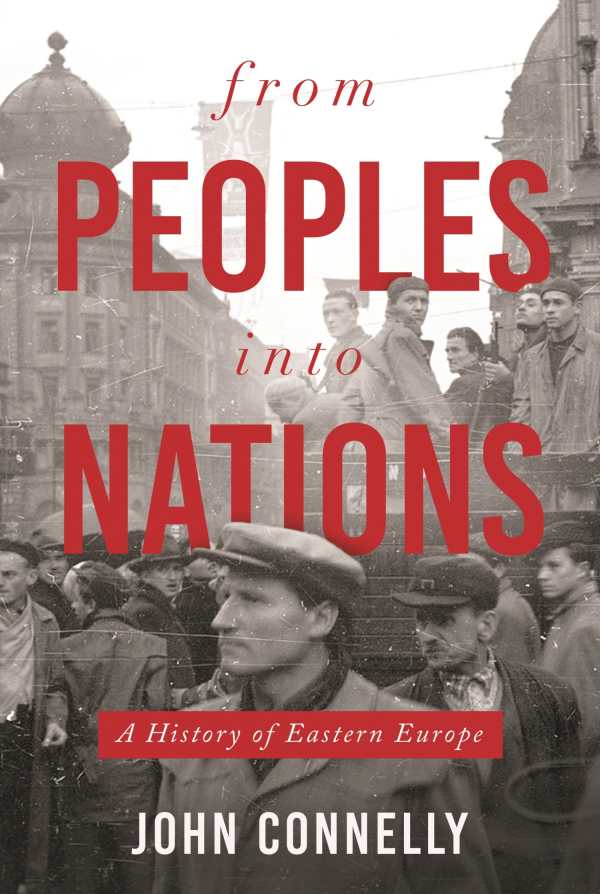It looks like you've stumbled upon a page meant to be read by our code instead of viewed directly. You're probably looking for this page.
From Peoples into Nations
A History of Eastern Europe
In the past few centuries, the map of Eastern Europe has changed far more than its western counterpart, as the rise and fall of empires—from the Holy Roman Empire to the Iron Curtain of Soviet rule—and groupings of people by language, religion, and ethnicity spurred both nationalism and conflict. Historian John Connelly tells these stories in From Peoples into Nations, a massive but engaging text that tracks the changing face of the region.
Connelly capably moves between peoples and nations, using a chronological approach that shows the impact of parallel developments. Where its Magyar history gave Hungary a distinct identity earlier than some of its neighbors, the lines were less clear for peoples of Germanic or Slavic background. For example, Bohemia long had an identity within the empires of which it was part, while Poland had existed as an entity before its erasure by its neighbors.
From Peoples into Nations explains, in detail, how Joseph II of the Hapsburg Empire making German the official language of his realm in 1790 unintentionally began a reaction of nationalism, as groups under Hapsburg rule fought to keep their distinct languages and traditions.
The book explains how Polish, Czech, Slovak, Serbian, Croatian, and numerous other ethnic groups came to celebrate their histories, and how the breakup of empires before and after World War I led to the formation of states as patchwork as Yugoslavia and Czechoslovakia. The Nazi invasions of World War II, the postwar Soviet takeover, and the often bloody divisions of people that followed the fall of communism are all thoroughly explored, as those similar experiences during the twentieth century still have important degrees of difference.
The past few centuries of Eastern European history are a complex web, and From Peoples into Nations achieves a difficult balancing act of focusing on the commonalities between various national narratives, while still giving appropriate weight to those individual narratives.
Reviewed by
Jeff Fleischer
Disclosure: This article is not an endorsement, but a review. The publisher of this book provided free copies of the book to have their book reviewed by a professional reviewer. No fee was paid by the publisher for this review. Foreword Reviews only recommends books that we love. Foreword Magazine, Inc. is disclosing this in accordance with the Federal Trade Commission’s 16 CFR, Part 255.
